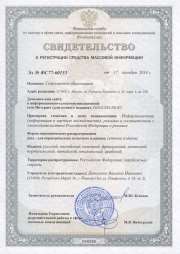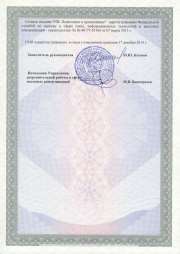|
MAIN PAGE
> Back to contents
Publications of Nemtsev Ivan Anatol'evich
|
International relations, 2019-2
|
|
Nemtsev I.A. - Russia in the Eurasian world: problems and prospects
|
|
pp. 147-153
|
DOI: 10.7256/2454-0641.2019.2.23258
Abstract: Over the recent few years, the Eurasian territory is undergoing many important (from the geopolitical perspective) and simultaneously worrying events, for Russia and for the world as a whole. The problems of Eurasian countries are compounding, and the most pressing issue becomes their comprehensive resolution by efforts from all states. Russia has great potential for solving some of the current issue, as well as prospects that should be noted. This article attempts to assess the prospects and possible directions for further development. The solution of the problems at hand is based on the positions and conclusions of works of some of the contemporary Russian and foreign authors, researchers and thinkers. Key issues in the Eurasian space and their causes are presented in this work. The author highlights and substantiates common and weighty causes for Eurasian integration in current geopolitical realities, as well as determines the prospects for joint solution of problems for the Eurasian states. It is noted that Russia, India and China (in their cooperation) can become the main “driver” of the Eurasian Union.

|
Philosophical Thought, 2018-5
|
|
Nemtsev I.A. - Obstacles standing in the way of sustainable development of the society
|
|
pp. 62-67
|
DOI: 10.25136/2409-8728.2018.5.23143
Abstract: The majority of works of the Russian and foreign scholars dedicated to sustainable development give particular attention to the conceptual ideas, modelling of social structure, separate components, strategies of transitional period, etc. But usually do not mention the difficulties of practical implementation of this idea. This article attempts to critically analyze the possibilities of implementation of sustainable development of the society in practice. The goal of this work lies in determination of the key problems standing in the way of global sustainable development of the society. It achievement is realized on the basis of geopolitical methodology, grounded on the principles of geopolitical dualism, regulations on humanity as a global interrelated and self-developing system (global evolutionism), as well as the principle of universal connection of the events, principle of development, and others. The author determines and substantiates the three most impactful obstacles impeding the sustainable development: lack of the universal concept; decline in the pace of globalization; and human consciousness as a factor of social development. A conclusion is made that overcoming of these three obstacles allows establishing the “sustainable” society in practice.

|
Philosophy and Culture, 2017-12
|
|
Nemtsev I.A. - Certain social aspects in the concept of sustainable development of society
|
|
pp. 46-52
|
DOI: 10.7256/2454-0757.2017.12.23244
Abstract: Over the last few decades, the concept of sustainable development has been forming within the social philosophy as an answer to the global human challenges. The scholars sufficiently detailed reveal the environmental component of sustainable development, while the social component just begins to formulate. The article attempts to examine some (less developed) social aspects through the prism of sustainable development of human civilization: urban environment, transport, family institution, social stratification, and social justice. The achievement of the set goal is realized based in the positions on humanity as a global interrelated and self-developing system (global evolutionism), as well as the principle of the overall connection between the phenomena, development principle, etc. The author considers the problems of formation of social component of sustainable development, such as: organization of ecologically safe transport infrastructure; family in “sustainable” future; substantiates the transformation of social stratification in global community for reaching the social justice. Despite of utopian nature of certain elements of the model of “sustainable” society, there currently exist the actual technical solutions, formulations, as well as the resource and intellectual potential for implementation of the indicated ideas.

|
Philosophical Thought, 2015-10
|
|
Nemtsev I.A. - Social and philosophical foundations of sustainable development
|
|
pp. 88-101
|
DOI: 10.7256/2409-8728.2015.10.1683
Abstract: The concept and strategy of sustainable development becomes more urgent in the world. Problems faced by the international community, can’t be solved by one state, that’s why globalization and the transition to “sustainability”, act as the need of construction of the future in the modern world. Over the last century the rate of production and consumption has risen sharply, which negatively affected the environment. Nowadays mankind spends far more resources than it spent in the previous centuries and than it is permissible for the planet. There is a contradiction between the possibilities of nature in its global scale and the “superneeds” of humanity that have been piled in the model of unsustainable development. At the moment, this contradiction is only increasing, despite the attempts of various organizations around the world to ensure the rejection of the consumption ideology and create the direction of the mankind to protect the environment (co-evolution of humans and nature). Nowadays society placed itself in a situation where it is obliged to coordinate their actions with nature for its further existence. Human attitudes to the nature only as a source of resources must be changed in the XXI century, otherwise humanity will come to disaster.The author examines the social and philosophical foundations of the concept of sustainable development. The article describes the relationship between the constituent components of sustainable development (social, economic and environmental) and basic human needs, as well as highlighted security as meta-component based on the triad component (which makes the concept of a system-integrated). Author discloses a socio-philosophical sense of the idea of sustainable development as a possible global ideas of humanity and the associated formation of a global sustainable human civilization. In domestic social philosophy remains controversial question of Russian identity, about the prospects of Russia in the future, about the national idea in Russia. The author of the article attempts to answer these questions. Providing space security globally and becoming a sustainable global civilization noosphere author regarded as the ultimate goal of the historical development of mankind (on Earth), followed by the conquest of space.

|
Politics and Society, 2015-7
|
|
Nemtsev I.A. - Ecological Function of the State in the Sustainable Development Concept
|
|
|
DOI: 10.7256/2454-0684.2015.7.12869
Abstract: The article considers the ecological problems of the member states of the Eurasian Union as a part of global problems, their reasons and negative consequences. The author comments on the existing contradictions between the opportunities of nature at the global scale and excessive needs of mankind existing in the unsustainable development model. At the moment this contradiction is only growing, despite the efforts of the UN and other international and national organisations worldwide to provide the rejection of the consumption ideology and re-orient the mankind to the preservation of the environment (co-evolution of humans and nature). It has been concluded that the problems faced by the international community cannot be solved by only one state, that is why globalisation and transition to a new, safer way of development serves as a necessity to create the future in the modern world. The article demonstrates the relevance of the idea and concept of sustainable development as a safer way of development aimed at the solution of the global problems of mankind. Methodologically the research is based on social and philosophical methods and principles of scientific knowledge. The author applies such general scientific methods as comparison, abstraction, idealisation, modelling, analysis, synthesis, etc. The desired goal is reached based on the assumptions about the mankind as a global interconnected and self-developing system (global evolutionism), as well as the principle of the universal interconnection of developments, the development principle, etc. The analysis and solution of the studied problems are conducted based on the general scientific research approaches. The studied problems are solved based on the assumptions and conclusions in the corresponding field mentioned in the works of modern Russian and foreign authors, researches and philosophers. Moreover, the author also uses the data of some sociological and statistical researches, parts of legislative acts, as well as the speeches of the public officials of the states of the planned Eurasian Union. The author considers the beginning Eurasian integration through the lens of sustainable development, when the common efforts of the Eurasian countries will solve both global and regional and local problems (in particular, Russia's prospects to improve the Eurasian ecological environment are considered). The article analyses the ecological function of the state and the opportunities for ecological monitoring. The author suggests and justifies the option of transition to the sustainable development (for Russia) from the perspective of the ecological component of sustainable development. The article reveals the opportunities for sustainable development in the context of solving ecological problems and prospects of a more systematic interpretation of the sustainable development concept.

|
Nemtsev I.A. - Ensuring the Eurasian Union's security through sustainable development. Towards a global security
|
|
pp. 21-40
|
DOI: 10.7256/2409-7543.2015.5.17416
Abstract: The article examines the national, global and space security in the model of sustainable development. The concept of sustainable development is considered holistically, as a relationship between a component and a meta-component - security. The study discusses the formation of the noosphere and the space development as the stages, following the emergence of a safe and sustainable global civilization. Space security provision and the formation of the noosphere sustainable civilization is considered by the author as a final goal of historical development of the humanity (on the Earth), which will be followed by the development of the space.The methodological basis of the research comprises such scientific methods as abstraction, idealization, comparison, analysis, synthesis, etc., and the method of forecasting. The research task is achieved with the help of the provisions about the humanity as a globally interconnected and self-developing system (global evolutionism), and on the basis of the principle of the universal interconnection of phenomena, the principle of development, etc. The research problems are solved on the base of the statements and conclusions about the studied subjects, described in works of the modern Russian and foreign authors, researchers and philosophers. The current global security model aggravates the global problems.The author comes to the conclusion about the necessity to ensure the national security of the Russian Federation and the regional security of the Eurasian Union by means of sustainable development. The author demonstrates that the survival of the humanity is possible only under the condition of its orientation towards sustainable development.

|
Nemtsev I.A. - The Eurasian Union as a new pole of global civilization
|
|
pp. 68-89
|
DOI: 10.7256/2409-8671.2015.3.15738
Abstract: The problem of economic integration and the creation and development of the Eurasian Economic Union has been urgent for the post-Soviet states for many years. The author considers the formation of the Eurasian Union as a confederative state which can be created on the base of the states of the Eurasian Economic Union. The author considers different variants of integration of the post-soviet space as the CIS, the Customs Union, the SCO, the Eurasian Economic Community, the Union State of Belarus and Russia and others. The author uses the general scientific methods: abstraction, idealization, comparison, modeling, analysis, synthesis and others. The problem is considered on the base of the provisions and conclusions of the modern Russian and foreign scholars, researchers and thinkers. The author outlines and substantiates the general and substantial reasons for the Eurasian economic integration and justifies the abilities of the Eurasian Union to solve the common problems. The author concludes that the creation of the EAU can also strengthen the Russia’s role on the international scene thus furthering the solution of the problem of regional security, and can weaken the influence of the leading Western countries on the world community. The studied factors of integration – economic benefits of the countries of the Eurasian Union and the strengthening of their joint security and influence on the global processes dictated by the US – are the key factors of this regional integration.

|
Politics and Society, 2015-2
|
|
Nemtsev I.A. - The Sustainable Development Strategy as an Integrating Core of the Eurasian Union
|
|
|
DOI: 10.7256/2454-0684.2015.2.12298
Abstract: In his article Nemtsev views the development of the consumer society in the post-soviet territories as a result of the influence of Western ideology of ‘overconsumption’. The author criticizes such ideology and the associated type of society. He examines other ideological concepts that could form the basis of Russian ideology (besides sustainable development) and concludes that they would have no prospects. The author also concludes that without ideology Russia would also fail as a state. The research subject of the article is the sustainable development as a common ideology of the Eurasian Union of Russia, Belorussia and Kazakhstan. Methodological basis of the research involves social and philosophical methods and principles. The aforesaid issues are studied on the basis of provisions and conclusions on the matter made by modern Russian and foreign researchers, authors and philosophers. Moreover, Nemtsev has used findings of sociological and statistical researches. He suggests that the paradigm of sustainable development should be the ‘core’ of the ideology of the Russian Federation and future Eurasian Union. He proves that it is important to develop such an ideology and describes the ideological concept. According to Nemtsev, the Sustainable Development Code should be introduced to implement the sustainable development strategies of the Eurasian Union. The author emphasizes on the implementation of the idea of sustainable development in the sphere of education to provide for the evolutionary transition of the society to a ‘sustainable’ lifestyle. Sustainable development is viewed as a system of better principles of the noospheric concept, socialism, Euriasianism and modern theories of the moneyless economy. Nemtsev also discusses the stages of establishing the sustainable development concept as a future state ideology.

|
Nemtsev I.A. - Sustainable Economic Models and Labour in the Eurasian Union
|
|
pp. 70-108
|
DOI: 10.7256/2306-0158.2014.6.12309
Abstract: The author considers various economic models (such as ecological economy, the concept of spare cash, electronic economy, the resource-focused economy) as economic model of Russia and the Euroasian Economic Union, and also as economic components of a sustainable development. Comparison of these models with modern economic model of Russia (and the world) is given. The environmental and social problems caused by modern economic system are considered. Questions of creation of uniform allied currency and uniform emission center of the states of the Euroasian Union are considered. Methodological basis of research are social and philosophical methods and the principles of scientific knowledge. Such general scientific methods, as comparison, abstraction, idealization, modeling, the analysis, synthesis, etc. are applied. Achievement of a goal is carried out on the basis of regulations on mankind, as to the global interconnected and spontaneous system (a global evolutionism), and also on the basis of the principle of general communication of the phenomena, the principle of development, etc. The analysis and the solution of studied problems is carried out on the basis of general scientific research approaches. The solution of studied problems is carried out on the basis of provisions and conclusions on the studied subject, containing in works modern domestic and foreign writers, researchers and thinkers. Besides, data of concrete sociological and statistical researches, excerpt from acts, and also performances of the top officials of the states of the planned Euroasian union are used. The general tendencies of change of work in Russia in connection with formation of information society, and also change in social stratification are predicted. The author offers and proves option of strategy of transition to a sustainable development from the point of view of economic components UR. Possible influence of new economic model of Russia and the Euroasian Union on world economic system is predicted.

|
Nemtsev I.A. - Green construction: eco-settlements as part of the steady development concept.
|
|
pp. 8-25
|
DOI: 10.7256/2310-8673.2014.3.13525
Abstract: The author analyzes the social problems of Eurasian Union member countries, and, as part of the solution, suggests reorganization of towns (or construction of new settlements, fully or in part), based on the Steady Regional Development Principles, which is a structural part of the global steady development concept. The author examines various concepts that may become the basis of the social component of steady development, such as "new urbanism", "garden city", "Project Venus", etc. The author describes steady development of regions from the urban standpoint (concepts of ecosettlements, noosphere settlements), green construction ("smart" homes, passive and active home, 3-d construction). The methodological basis of this study includes the social and philosophical methods and principles of scientific study. The author also employs general scientific methods, such as comparison, abstraction, idealization, modeling, analysis, synthesis and others. The goal of the study is reached via the perception of humanity as a global interconnected, self-improving system (global evolutionism), and via the principles of general connections between phenomena, development principles, etc. The analysis and solution of the problems at hand is based on general science research approaches. Those problems were solved, based on the concepts and conclusions within the field of study, introduced by modern Russian and foreign authors, researchers and thinkers. The author offers a solution for organizing towns, based on steady development principles (as a synthesis of the most socially and environmentally rational concepts, such as new urbanism, project Venus, "smart" home, etc.). The author substantiates a connection between the natural and the social parts of steady development. Steady development of regions is offered as a basis for the social component of Eurasian Union's steady development.

|
|






